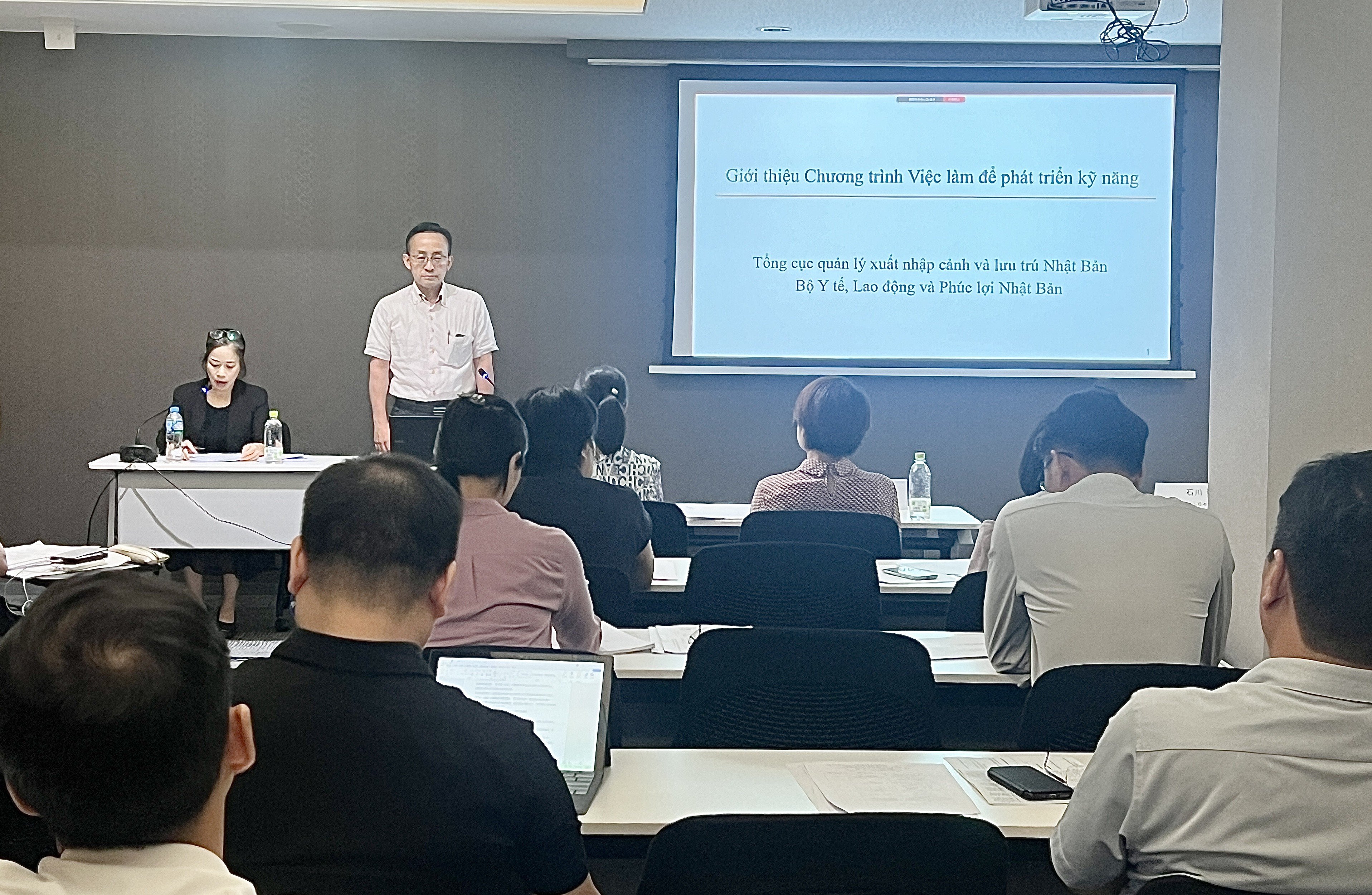 |
| Workshop on Japan - Vietnam human resource development in 2025. (Photo: Mai Anh) |
At the workshop, officials from the Ministry of Health , Labor and Welfare of Japan and the Immigration Services Agency of Japan introduced the “Employment for Skill Development” (ESD) program. The program aims to receive and systematically train foreign human resources in fields with labor shortages in Japan, contributing to the sustainable transfer of skills and knowledge, instead of focusing only on providing cheap labor.
Each foreign worker will have a “skill development employment plan” developed for a period of 3 years, including specific indicators on work, professional skills, Japanese language proficiency, etc. After this period, workers will have the opportunity to move up to higher skill levels such as specified skills No. 1 (SSW1) and specified skills No. 2 (SSW2) if they meet the professional and Japanese language requirements. The establishment of the ESD system not only contributes to standardizing and improving the quality of foreign human resource training, but also opens up opportunities for them to work long-term, stably and have the opportunity to develop their careers in Japan.
An important new feature of the ESD program is that workers will be allowed to change workplaces if they meet conditions such as working in the same industry and meeting the skills and Japanese language proficiency requirements. This is different from the current technical intern training program, which prohibits job changes, leading to many cases of workers running away because they cannot stand the working environment.
To prevent businesses from competing too much for workers, the new system stipulates that workers cannot change jobs for a period of 1-2 years, depending on the industry. After this period, job changes are only allowed if the worker passes skills and Japanese language tests, and the receiving company must also meet certain government criteria.
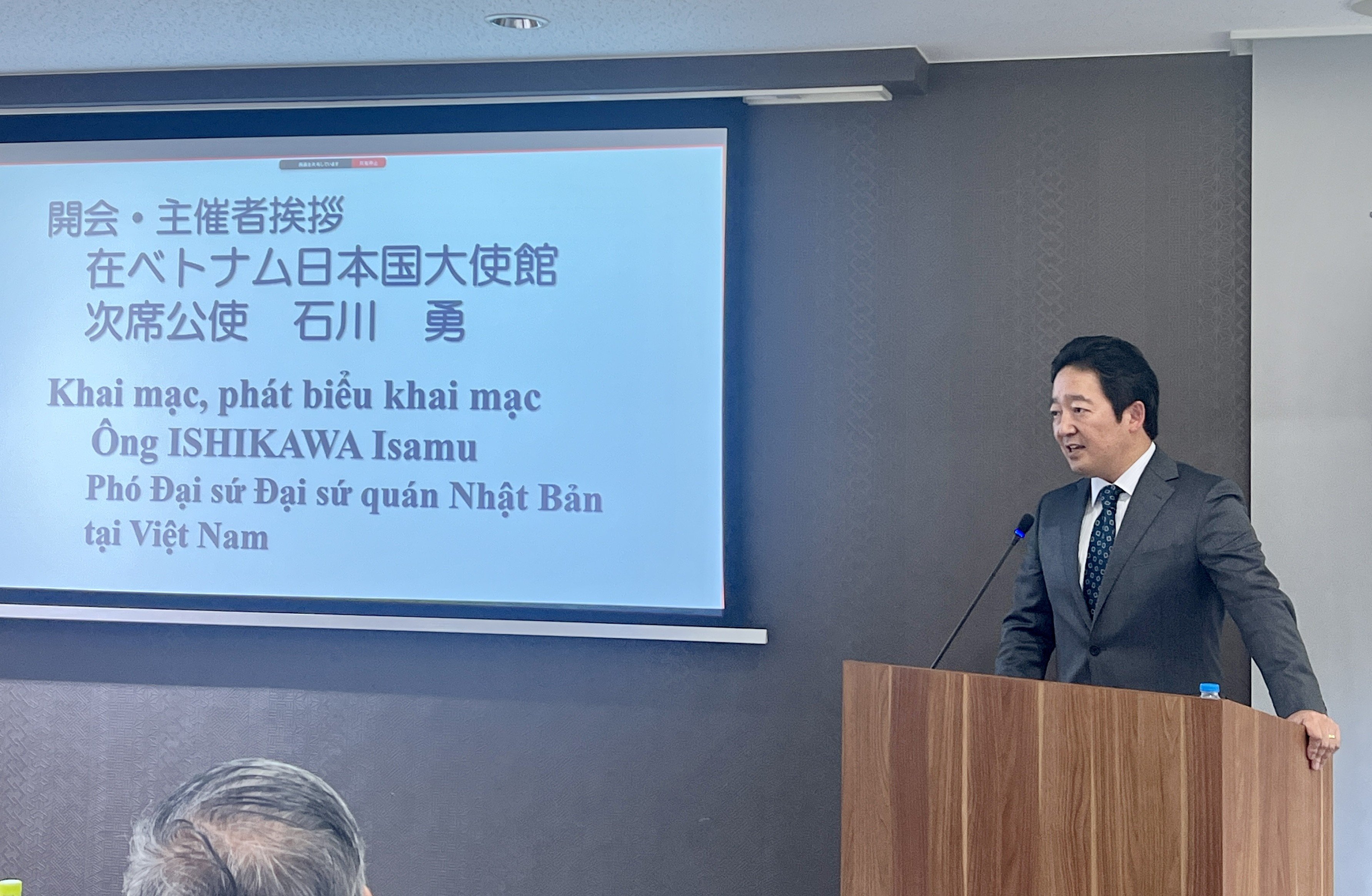 |
| Mr. Ishikawa Isamu, Deputy Ambassador of Japan to Vietnam. (Photo: Mai Anh) |
Speaking at the workshop, Mr. Ishikawa Isamu, Deputy Ambassador of Japan to Vietnam, said: “We hope that through the ESD regime, we will significantly improve the working environment for Vietnamese workers in Japan, so that they no longer have to face unnecessary troubles. Japan is striving to create a happier living and working environment for Vietnamese people, and is committed to continuing to be a reliable destination for Vietnamese workers in the new era of development.”
Currently, Vietnam is one of Japan's leading important human resource partners, with hundreds of thousands of workers working in fields such as industrial production, food processing, nursing, construction, services, etc. In the context of Japan's rapidly aging population, the demand for recruiting foreign workers, especially from Vietnam, is forecast to continue to increase in the coming years.
However, to effectively take advantage of the opportunities from the new regime, Vietnamese workers also need to face and overcome many challenges such as: improving Japanese language proficiency, professional skills, understanding of Japanese law and corporate culture... The Embassy of Japan in Vietnam and relevant agencies affirmed that they will closely coordinate with Vietnamese agencies to enhance training, disseminate policies and support access to information for workers.
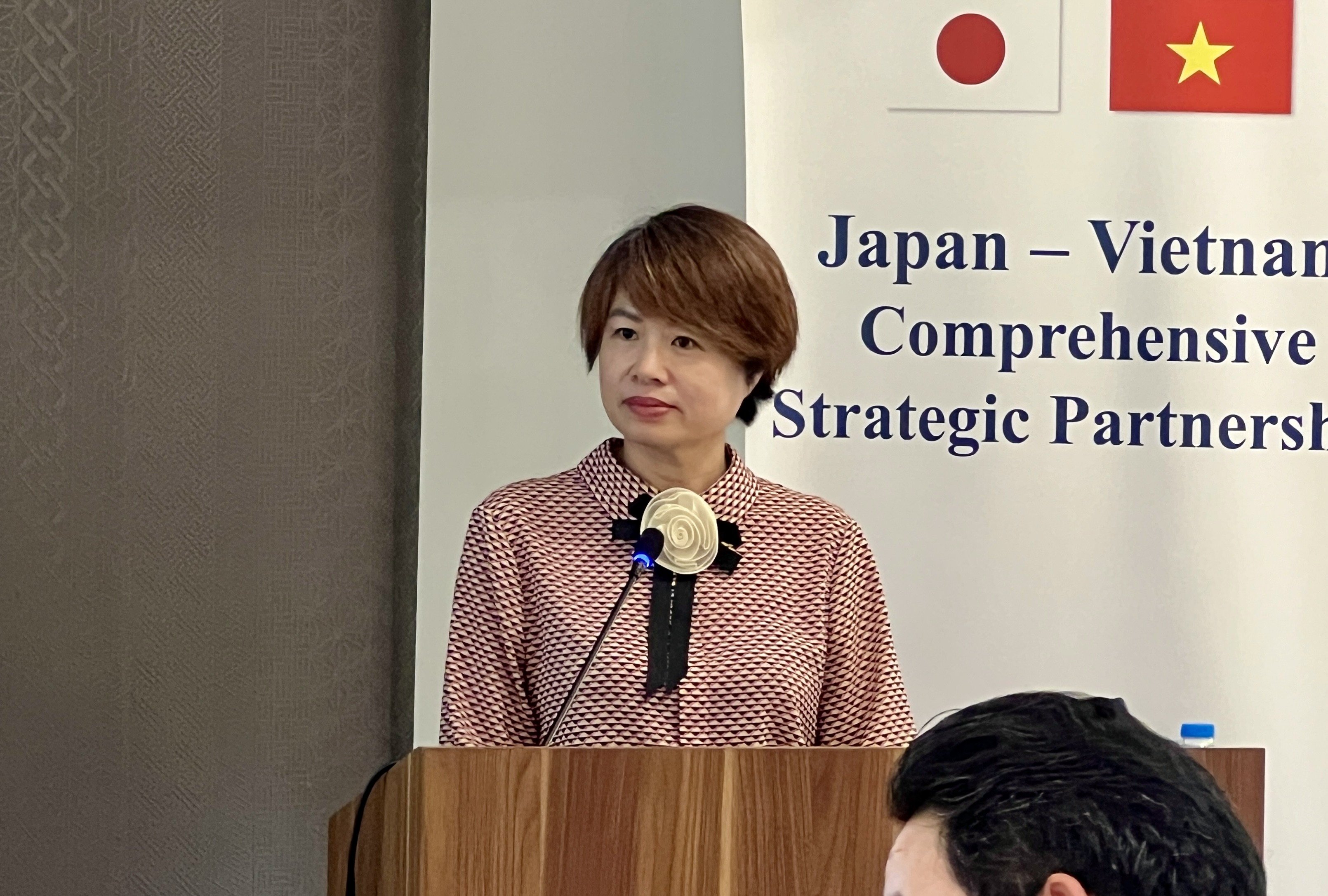 |
| Ms. Nguyen Thi Tuyet Nhung, Head of Asia and Africa Market Department (Department of Overseas Labor Management, Ministry of Home Affairs ). (Photo: Mai Anh) |
According to Ms. Nguyen Thi Tuyet Nhung, Head of the Asia and Africa Market Department (Overseas Labor Management Department, Ministry of Home Affairs), Japan is currently the largest labor market for Vietnam. To date, hundreds of thousands of Vietnamese workers have gone to work in Japan under technical intern programs, specific skills, and other forms of labor cooperation. In 2024, 71,500 Vietnamese workers went to work in Japan, accounting for nearly 50% of the total number of Vietnamese workers working abroad. These figures are evidence of the trust and close coordination between the two countries in the field of human resources.
Ms. Nguyen Thi Tuyet Nhung assessed that the ESD program is an opportunity for Vietnam to improve the quality of its labor force, meeting the global trend of job shifting in the context of population aging and strong digital transformation. She affirmed that Vietnam is ready to accompany Japan to build appropriate policies, promote skills training, improve management capacity, professional awareness and industrial style for workers. Through that, it will not only meet the recruitment requirements from Japan, but also contribute positively to the socio-economic development of both countries.
Source: https://thoidai.com.vn/co-hoi-de-nguoi-lao-dong-viet-nam-lam-viec-lau-dai-va-phat-trien-su-nghiep-tai-nhat-ban-215193.html


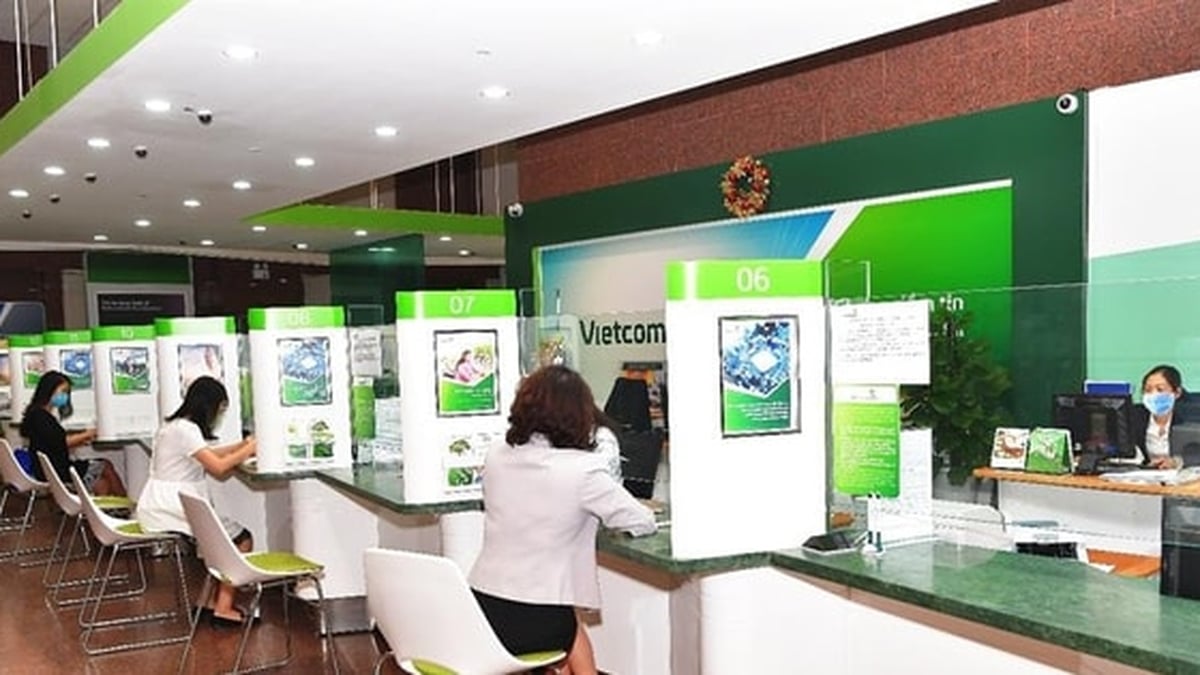


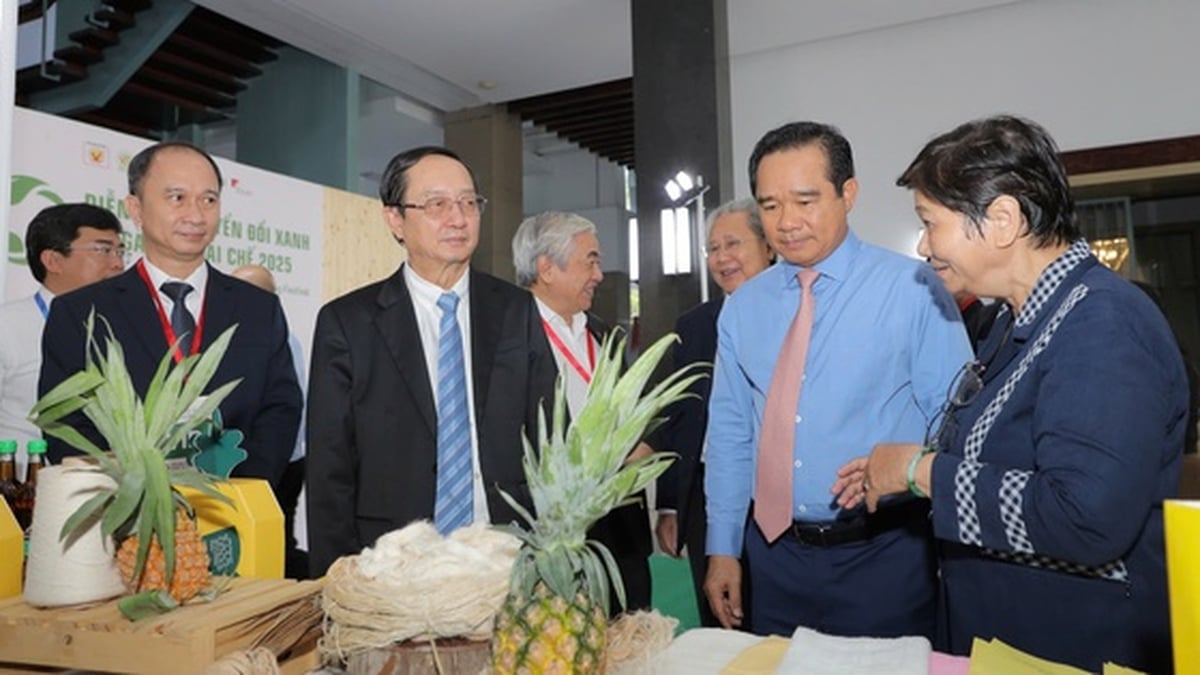

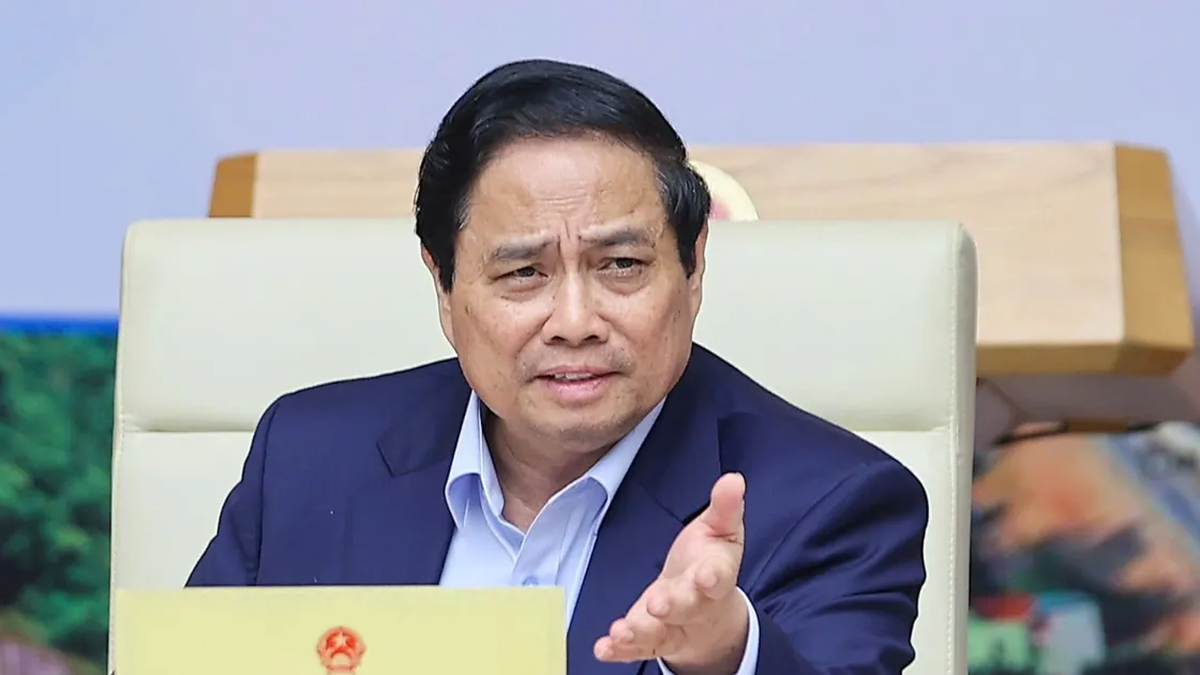











































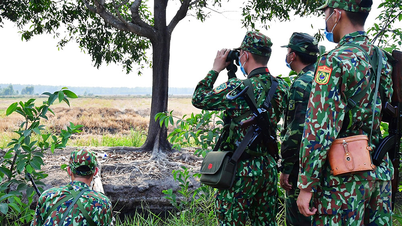




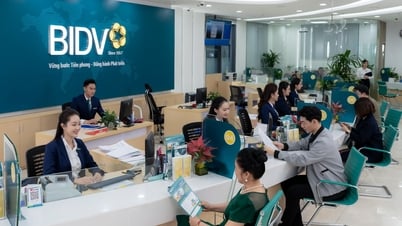



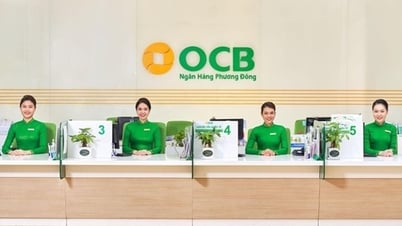

























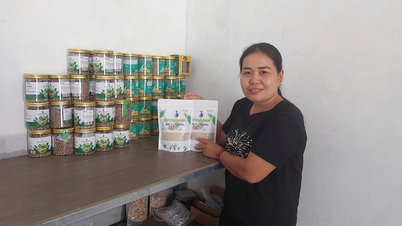














Comment (0)